Getting serious about comedy
From Sparks to Smoggie Queens, Sam Wonfor explores how the North East became a rising powerhouse for TV Comedy
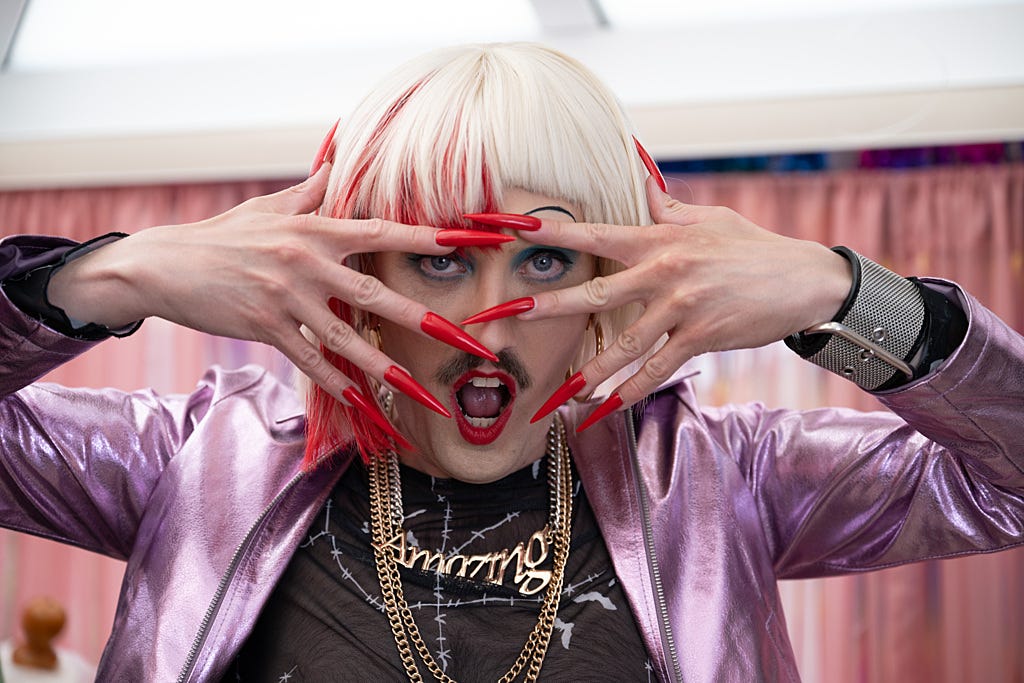
Last night on a London red carpet Smoggie Queens, a bold BBC sitcom from Middlesbrough-born writer Phil Dunning, was vying for a BAFTA.
Recently greenlit for a second series, the show - made by Hat Trick Productions, backed by the North East Screen Industries Partnership (NESIP) Production Fund and shot wholly on Teesside - is more than just a success story; it’s a watershed moment for the North East’s TV comedy industry.
For years, the region’s distinctive comedic voices operated on the very edges of the national picture. Now, they’re bidding to be front and centre - and at the heart of this transformation are three names: Emma Lawson, Alison Gwynn and Lisa Laws.
The journey to this point began quietly, but with intent. Emma, now Comedy Commissioning Editor at the BBC, grew up in County Durham and started her media career as a teenager.
In those early years, she was immersed in a busy local industry - cutting her teeth with production companies like L!VE TV and Ipso Facto Films, and having doors and opportunities opened by the then Northern Film and Media (NFM) screen agency – now North East Screen.
“When I was 15, I didn’t have to leave my home to get experience in telly,” she recalls. “I did work experience, got on productions, and was able to build skills on my doorstep,” she says.

But by the time Emma had clocked up a decade working at Roughcut TV with comedy royalty, Ash Atalla (The Office, People Just Do Nothing, Staths Lets Flats) and had taken a job with BBC Studios, producing the comedy drama, Trying for Apple TV, it was a different story – particularly when it came to Emma’s area of expertise.
“People might say it’s the geography of it or because they’re not getting to talk to the right people – and that is definitely part of it,” she says. “But production companies have to have comedy expertise, and historically, the North East’s production companies just weren’t making comedy.”
Emma knew that could be turned around as the appetite for comedy was definitely there. “The hurdle in the North East was never lack of talent - there’s loads of brilliant people. It was about getting everyone connected up and more informed – so they were qualified to go for these opportunities.”
Alongside Lisa, development director at North East Screen, she has spent the last six years finding ways to make it happen – starting with informal nudges and progressing to big swings.
Together – and thanks to the unwavering support and signature forward thinking of North East Screen’s chief exec, Alison - they united to build the North East Comedy Hot House: a developmental crucible designed to nurture talent, demystify industry expectations, and connect regional voices with national commissioners, as well as with each other.
Lisa describes the scripted comedy situation in 2018–19 as “like tumbleweeds”. There had been previous BBC comedy initiatives like Jesting About – and let’s not forget the BBC2 sitcom, Hebburn by Jason Cook (more of him later) in 2012-13 - but there was little sustained infrastructure.
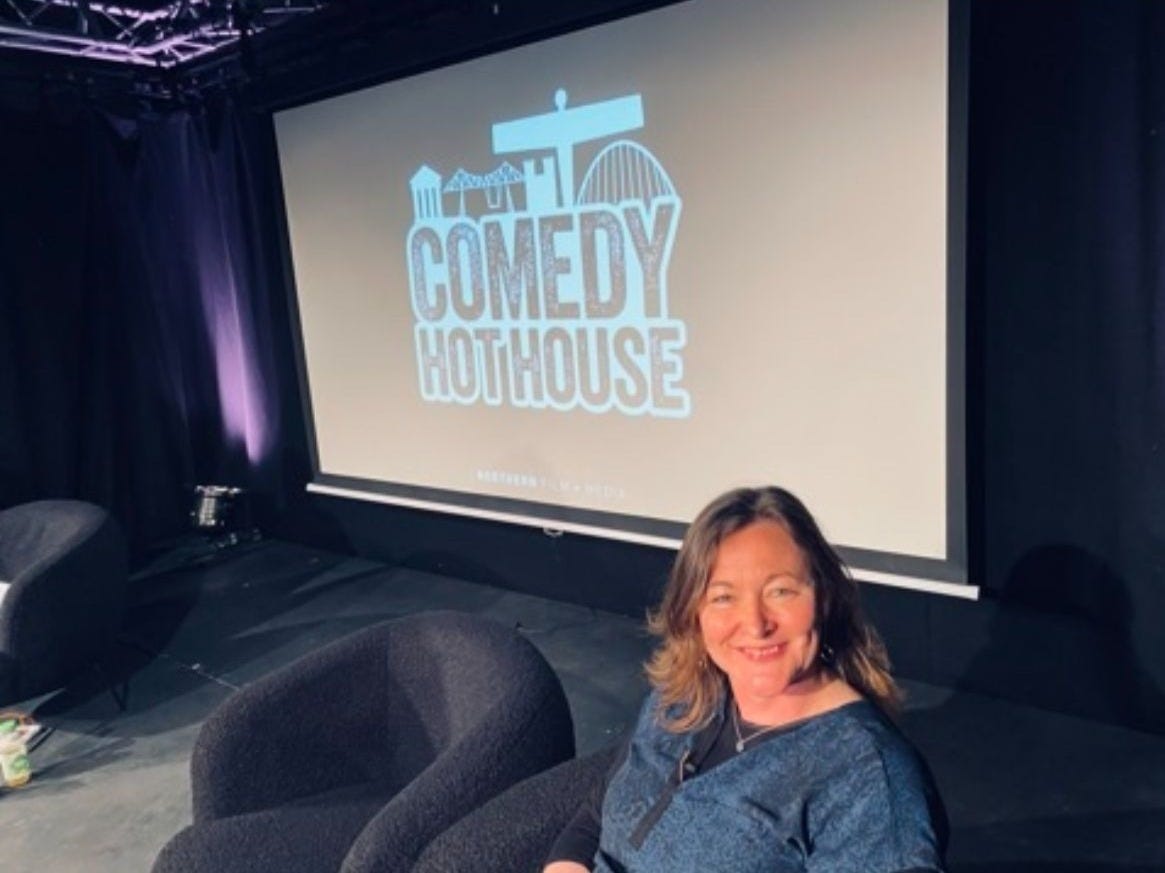
“There was definitely a suspicion around developing for TV and digital platforms,” she says of the region’s early response. “You got a sense that people didn’t think it was worth it. They were worried they were going to get egg on their faces.”
What changed? “Emma was the difference,” Lisa says plainly. “She wasn't going to let it go.”
The first major breakthrough came in 2019 when the Hot House pitched to Channel 4’s Sparks - shortform comedy sketches for digital platforms. As anyone who meets them would expect – they got it.
Rather than award the commission to a single company, they decided to split the work across several North East indies. “It wasn’t just about making shorts,” Emma says. “It was about bringing as many people as possible along for the ride, getting people to understand how processes worked - how to write a treatment, what a slate is, what the language is, ultimately how to get stuff made.”
This practical, collaborative approach became the ethos of the Hot House, and resulted in the then BBC head of comedy, Shane Allen backing them in 2021 with the BBC’s Small Indie Fund.
That funding allowed for expert masterclasses, and the creation of bespoke schemes like the Development Producer Trainee Scheme with Tiger Aspect (supporting local producing talent Emma Roxburgh, Hal Branson and Mark Kenny); then came the BBC Laugh Lessons - a follow-up slate of shorts from the BBC which showcased work from Raul Kohli, Chess Tomlinson, Joby Mageen and Will Wynn Davies.
The development relationship Mark Kenny forged with Tiger resulted in the development of Jack Robertson’s BBC Comedy short film Where It Ends and subsequent BAFTA nomination in 2024.
These incremental wins didn’t just build confidence, they built capacity. “People had comedy that had been commissioned and broadcast that they could point to. They were in the game,” says Emma. “You often can’t be commissionable until you’ve had a commission – so this was all about finding ways to break that cycle.”
At the same time, a broader transformation was unfolding. In 2021, the BBC committed £25 million over five years to the North East - a game-changing investment that aligned with an £11 million commitment from the North East Screen Industries Partnership (NESIP). The goal: to nurture a self-sustaining regional production industry. The Hot House was ready. “We planted the seeds,” Emma says. “So that when the opportunities came, the production community and talent would be part of the change, part of the story.”

It’s difficult to overstate how rare this kind of groundwork is in regional media development. The work wasn’t flashy. It was unpaid, often conducted in the margins of other jobs, driven by sheer belief.
“It was about de-risking,” Lisa explains. “Making it possible for companies like Hat Trick (Have I Got News For You, Derry Girls, Outnumbered, Father Ted) to say, ‘Actually, we can do this here, they support comedy.’”
That moment of realisation came in the form of the BBC Comedy Festival.
As part of the wider BBC Comedy commitment, and with the joined up support of North East Screen, in 2022 the Corporation’s new head of comedy, Jon Petrie launched the event in Newcastle. It brought the great and the good of the UK comedy industry to the city for three days of panels, events and pasties – Greggs were sponsoring, of course.
Emma remembers seeing and feeling the buzz at the Festival’s opening event inside BALTIC, overlooking the Tyne as being very special.
“There were people that I'd known for years in the North East and years in London - seeing them in a room talking together blew my mind,” she laughs. “It was like at a wedding when you see worlds colliding – just wonderful.”
The festival was game changing for many people - creative relationships were born, partnerships were made, and talent connected with agents. A Regional Partnership Scheme was launched and co-funded with NES, which saw Adam Bouabda’s Sea & Sky Pictures paired with Hat Trick on a slate of scripted comedy ideas.
But for one particular individual, it galvanised a project into action.
Smoggie Queens’ Chris Jones from Hat Trick was already working with Phil Dunning during the BBC Comedy Festival, and has said: “The Festival really helped me as a producer, as it was made clear that there was a want/wish for a North East-based comedy, and there was so much support available in the region, so I knew it could be possible. We had to make BBC the home for Smoggie Queens.”
Three years later, following an impossibly glamorous launch at Middlesbrough Town Hall towards the end of last year, Smoggie Queens grabbed the headlines and quite the following as it portrayed the outrageous and everyday adventures of a tight knit group of LGBTQ+ pals on Teesside.

“Smoggies was all Hat Trick,” Lisa is quick to clarify. “And Jimmy Mulville has been such a strong supporter of the work we’ve been doing here. So, it was the environment - the alignment of the NESIP fund, the Hot House groundwork, the BBC Comedy Festival - that showed it could be viable.”
And it isn’t the only success story. Kenton Allen from Big Talk recently brought their new ITV sitcom Transactional, to Hartlepool’s Northern Studios and will be broadcast later this year. Indies like Candle & Bell and Schnoobert (the aforementioned Jason Cook’s production company), are both into their third year being supported by the BBC Small Indie Fund and have all secured development commissions bolstered by North East Screen’s Reach fund.
“Candle and Bell are developing co-productions with some big players and have also got a returnable radio comedy series - I don’t think anyone has done that in the North East to my knowledge,” says Emma.
“And Schnoobert are in ample development too - pursuing projects with Hat Trick and Channel X to name just two.”
“They’ve both done what they’ve done because they were funded to get teams inhouse and on the ground – and it’s a joy to see.”
A talent ecosystem - once fragmented and suspicious - is beginning to resemble an industry… and the North East Comedy Hot House has been given due recognition, In 2022 it won The Makers and Shakers Award for Initiative to Grow Local Industry. and in 2023 won the North East and Borders Royal Television Society RTS Centre Award.
Emma believes that clarity and access were key. “For years it felt like a closed shop,” she says. “There might be a brief on the website, but only a few key suppliers were being told what commissioners were actually looking for. Now, everybody gets the same information, regardless of where they are or what they’ve done. And with the added support of a best-in-class screen agency, people can be unstoppable.”
Both Emma and Lisa are clear-eyed about the work still to be done. “Comedy’s always been the poor relation,” says Emma. “It’s hard. It’s subjective. But that’s also what makes it brilliant.”
And yet, optimism is now the dominant mood in the North East’s creative corridors. “The event at Middlesbrough Town Hall for Smoggie Queens felt game-changing,” says Lisa. “Loud and proud. Like we’d all been saying it might happen - and then it did.”
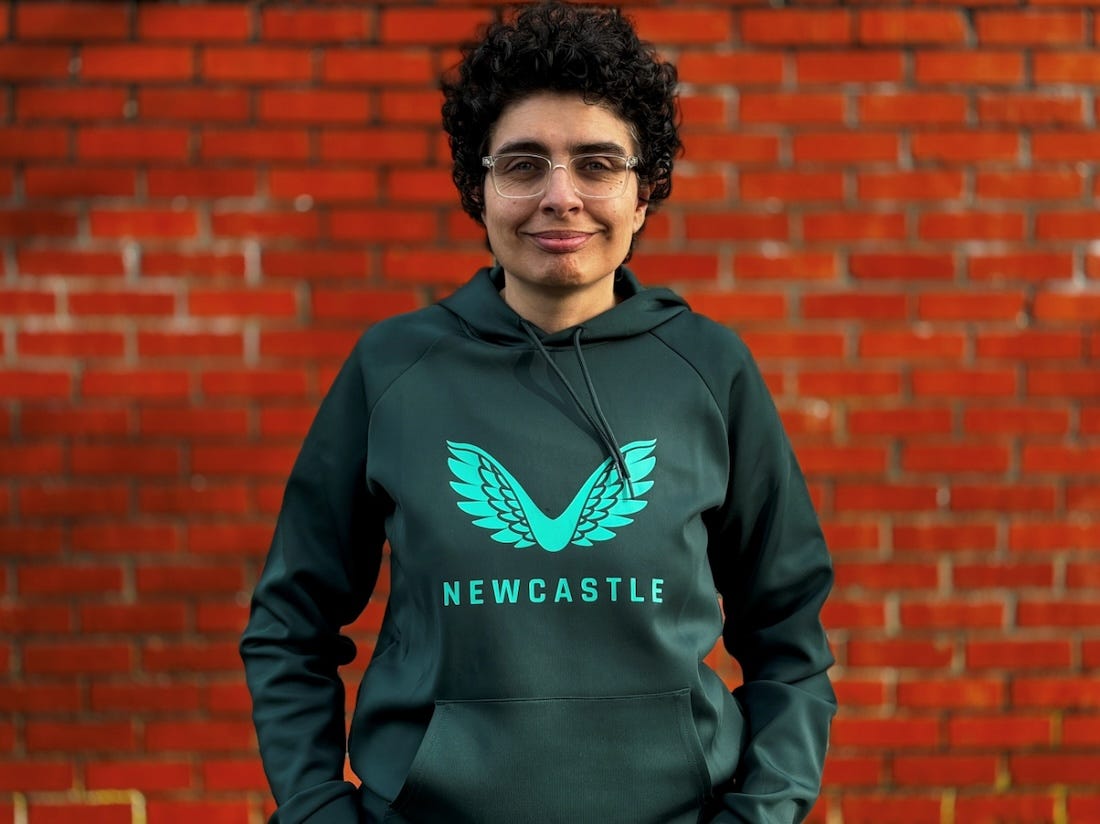
Looking ahead, Emma, who is working with a number of North East companies to develop several scripts – of which she can say little, of course - hopes to see even more structural change.
“Lisa and I would love to see one of the major indies set up a formal base in the North East,” she says. “And we want to see the regional companies working with multiple broadcasters, and continuing to get scripts commissioned and projects away. That just wasn’t the case seven years ago.”
Emma says she is particularly proud of how the Hot House experience helped shape her work at the BBC.
One of her first moves was to reform the broadcaster’s outreach and inclusion work, establishing the BBC Comedy Collective - a supercharged bursary scheme that has already included two North East creatives among its first 20 recipients – Newcastle film maker Benjamin Bee and producer Zahra Zomorrodian, who has joined Candle and Bell as head of comedy.

For a kid “from a field in County Durham” (aka Mordon), who once got a “life-changing” ticket to the Edinburgh TV Festival thanks to Northern Film and Media, this moment seems personal.
“I think we’ve made massive headway, and of course now I’m working at the BBC, we’re doing the same kind of work in other places - like in Belfast (where the next BBC Comedy Festival will be held later this month).
“But in terms of the Hot House work we did, if I wasn't from the North East, would I have been as driven to work weekends and evenings and put in as much work as I did to try and make things happen? I honestly don’t know.”
For Lisa this is key to the change we need to see - more commissioners in and from the regions.
The Smoggie Queens family returned to the BAFTAs this weekend to see if it could be third time lucky for its star creator, Phil Dunning who had been up for two BAFTA Craft awards a couple of weeks back for Writer: Comedy and Emerging Talent: Fiction.
On Sunday night he was up for Male Performance in a Comedy where he was ultimately beaten to the coveted gold mask by Danny Dyer. Nevertheless as the cast prepare to reconvene on Teesside for series two of Smoggies in the summer, the line from fringe to frontline becomes clearer.
From Alison Gwynn’s quiet course-plotting coffees on the Quayside to multiple red carpets and returnable commissions, the North East is no longer waiting for scraps. We’ve taken a seat at the big table – and I reckon we’re only half way through the amuse bouche.




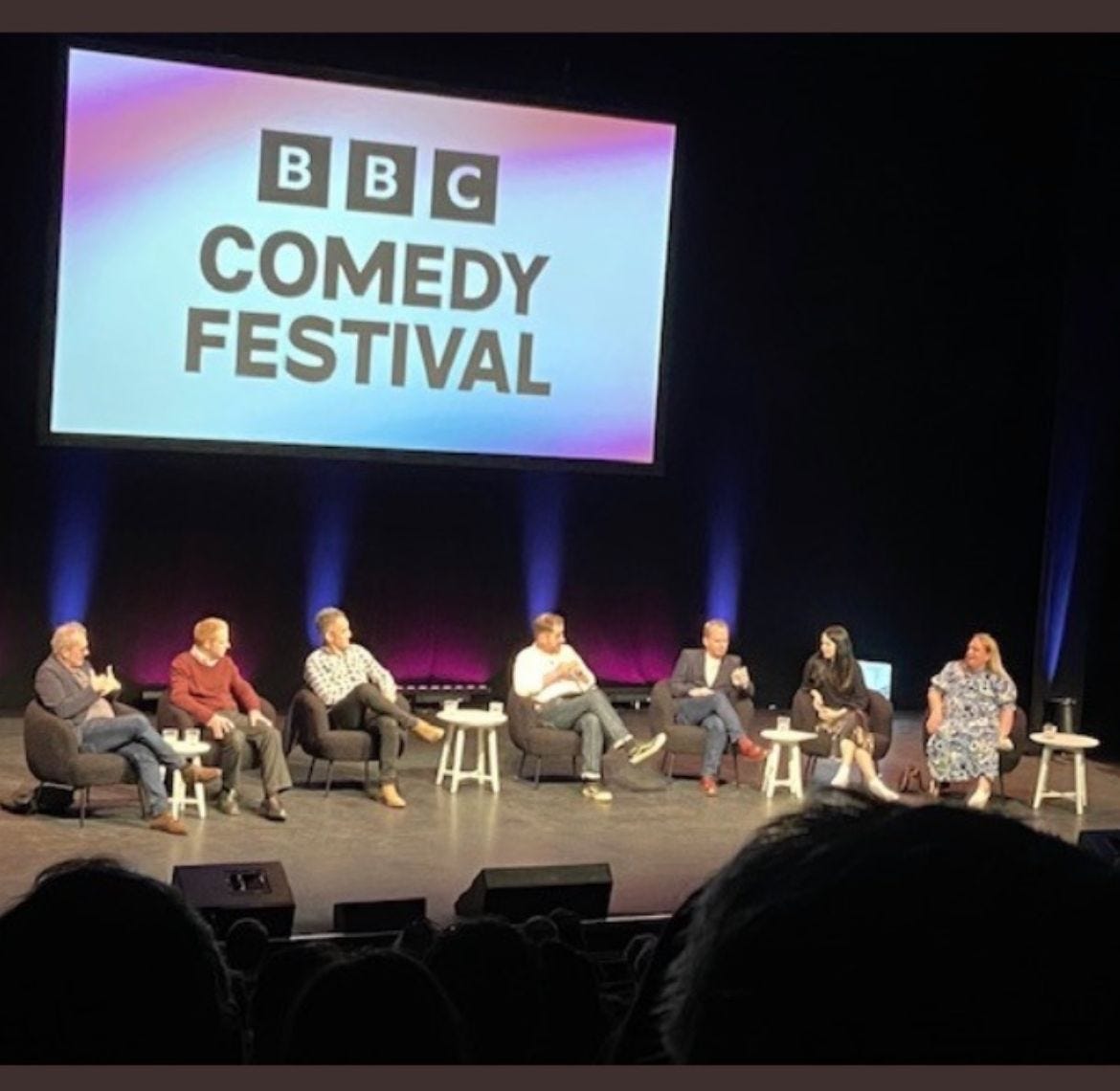

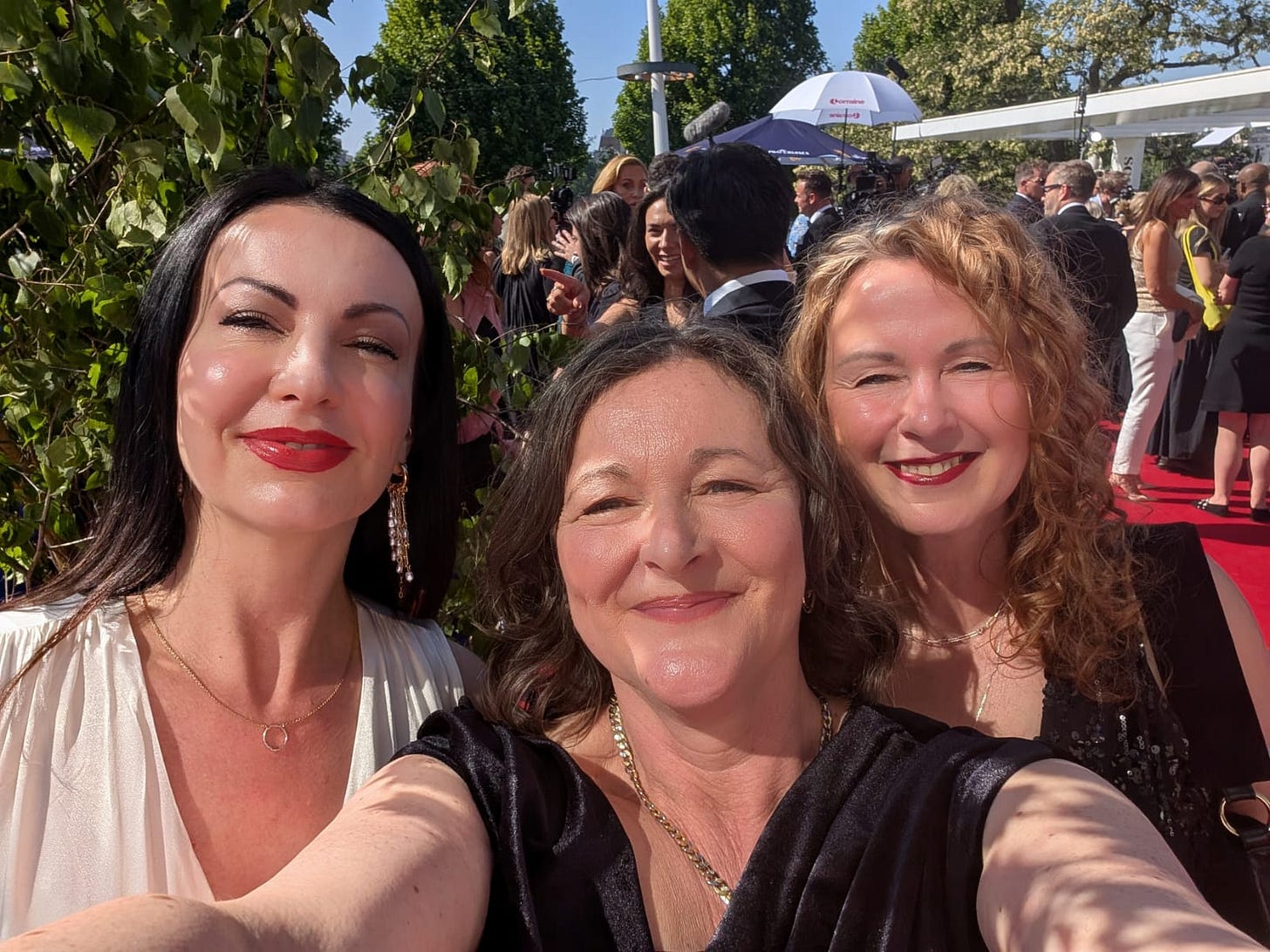
This is a brilliant article. Kudos to the writer and of course to Emma and the gang who have devoted so much time and graft to achieve what had for years seemed impossible.
Best of luck to all with the next phase. 👏👏👏👍✊❤️